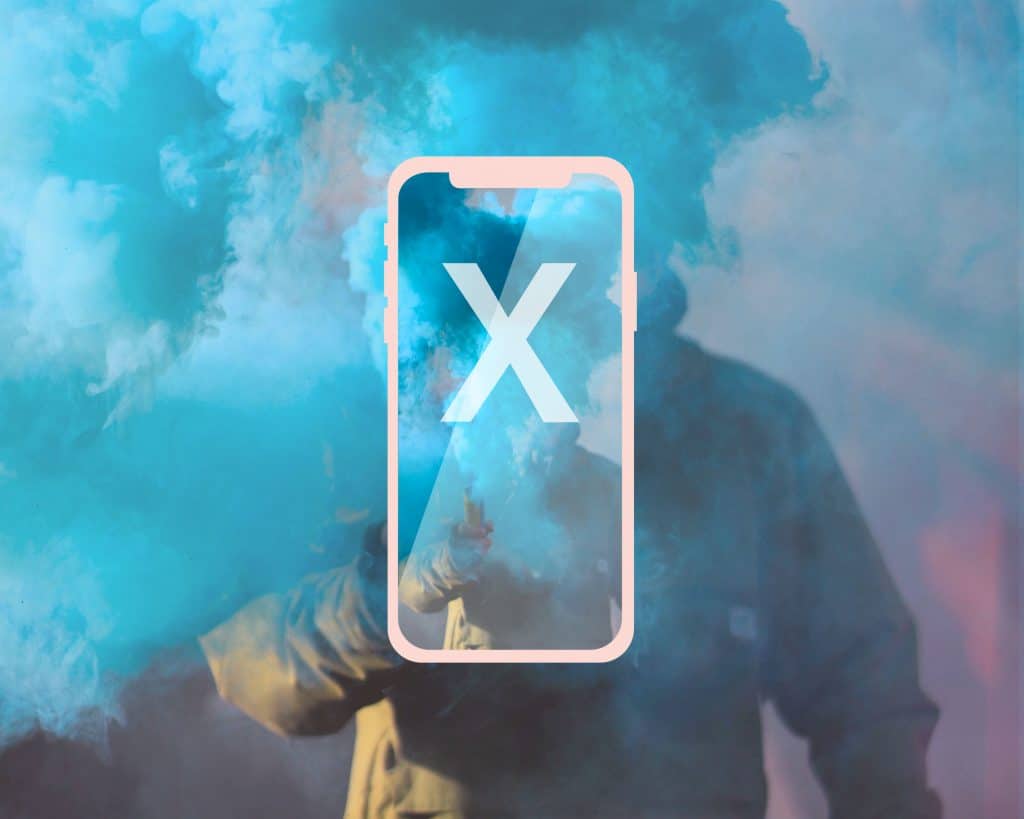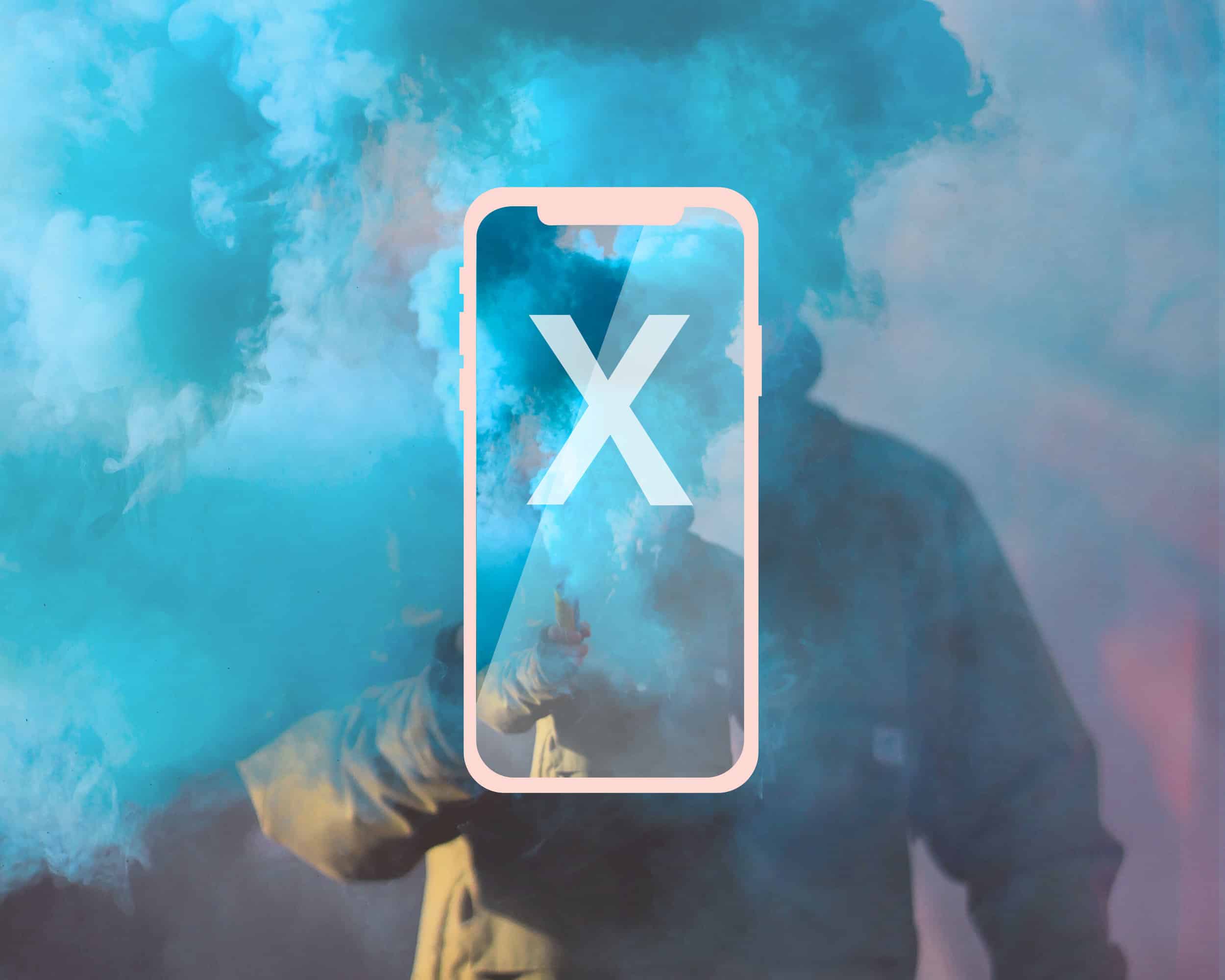
iPhone X: Facing the Future
Ashley Merck, The Vision Magazine Photographer
Image courtesy of Unsplash.com, graphic by Wyatt Duncan
He gets a text from his friend in the middle of the night. He grumpily wakes up and rolls over to check his notifications. In the past, he struggled to memorize his passcode in his half asleep state of mind, but with his new iPhone X, that is no longer an issue. With just a glance at the screen, his phone recognizes his face and unlocks it for him without a push of a button.
It’s official, Apple is coming out with yet another product in its iPhone collection. On September 12, 2017, Apple announced that the newest iPhone 10 (or the iPhone X) will be released the beginning of November 2017. While many tech enthusiasts are excited for this $999 phone, others are concerned with the new revolutionary identification process through face recognition (or Face ID). That’s right, say goodbye to home buttons, fingerprint recognition and passcodes on lock screens, because with the iPhone X, users can unlock their phones by simply looking at their screen.
Apple Inc. claims that this face ID is a safe form of identification. With its TrueDepth camera, the iPhone X can calculate over 30,000 invisible dots to precisely map out your face and use it for further recognition. The iPhone X will not have the traditional home button as previous models had. To unlock the phone, its owner must look at the camera with eyes open and it even works in the dark with an infrared camera. One fun factor of the face recognition is that owners can animate emojis using their facial expression and head motions. Apple also claims it will still recognize its owner despite his or hers change in appearance, such as growing a beard, wearing
glasses or a hat, etc. as long as it’s a gradual change. The probability for anyone to hack into a person’s phone using Face ID is 1 in a million.
Because of this, some consumers are concerned with security and privacy issues surrounding the new innovation in iOS. This is particularly true for democratic Sen. Al Fraken who recently expressed his concerns to the CEO of Apple, Tim Cook. Fraken wrote, “Apple itself could use the data to benefit other sectors of its business, sell it to third parties for surveillance purposes, or receive law enforcement requests to access its facial recognition system – eventual uses that may not be contemplated by Apple customers,” according to CNN.
With that being said, what should Apple consumers know before purchasing and using the latest technology it has to offer? Heidi Campbell, a professor of media law at North Greenville University (NGU), explained that “there are no legal laws against Apple using the data collected and distributing it to third parties if the consumer allows the company to do so.” This is how Siri currently operates on iPhone. Apple consumers have the option to either use or not use Siri. There is no in-between so when that person allows his phone to use Siri, he is giving up a lot of his privacy without necessarily realizing it. The same goes for the Face ID; once Apple collects that information, the consumer may be giving up more privacy than he or she initially intended. Campbell also stated that we as a society are so consumed with having the next best technology, we often don’t think of the consequences that come after giving up a portion of our privacy. “By protecting yourself, you’re giving up your privacy,” explained Campbell.
However, Brennan Revells, a student technician in the NGU information technology department, assured that the data collected from Face ID will not be seen by Apple or third-parties. “The “Faceprint” for Face ID is stored in a secure enclave of the iPhone’s X chip…. the
data that is stored on the enclave is never sent to Apple or the Government according to a statement made by Apple,” explained Revells.
While Apple users will have a choice as to whether they wish to use Face ID or not, Apple doesn’t give them a choice as to what technology features come on the phone. So when consumers buy the iPhone X, they will automatically have Face ID on the phone, but it’s ultimately their decision as to whether the function will be used or not.
In contrast to all the negativity surrounding the security and privacy of the iPhone X, some potential consumers do not seem to have a problem with it. “In my opinion, the Face ID technology is very secure and most likely going to be pretty accurate and easy to use,” explained Revells.
Only time will tell whether Face ID will be as safe as Apple claims it to be. But as the time draws near for the iPhone X to be released, both tech enthusiasts and naysayers will be chiming in their opinions regardless.

